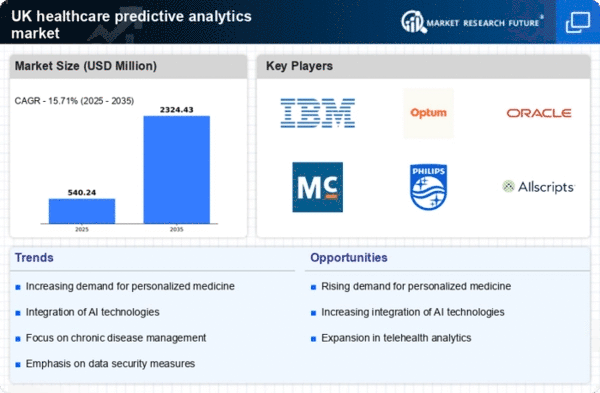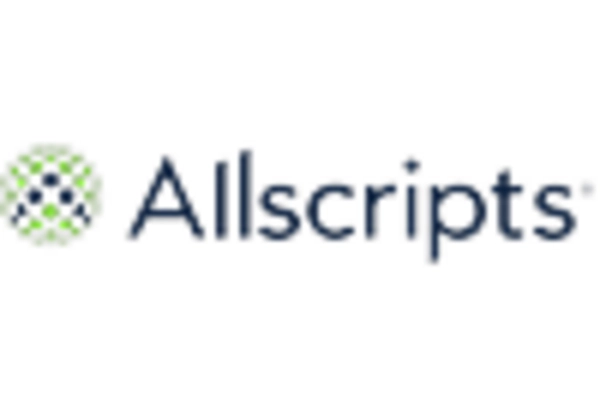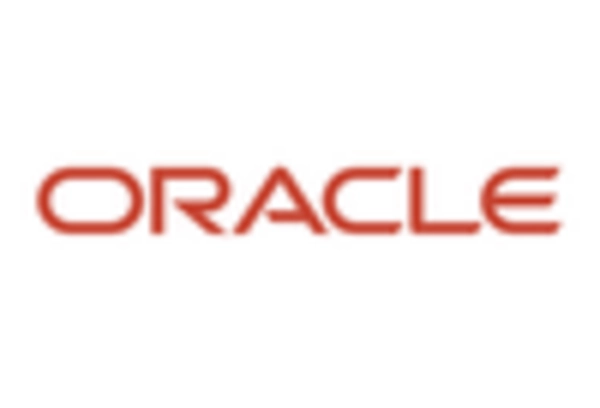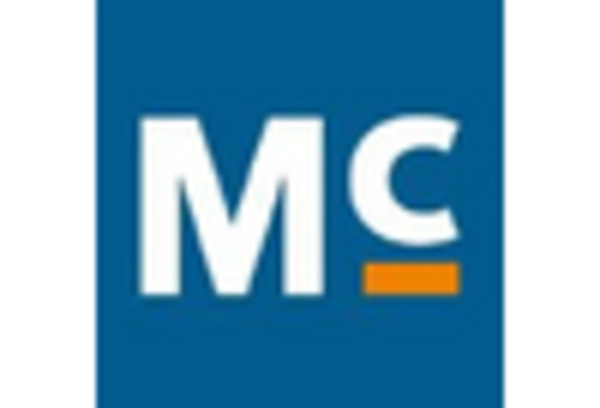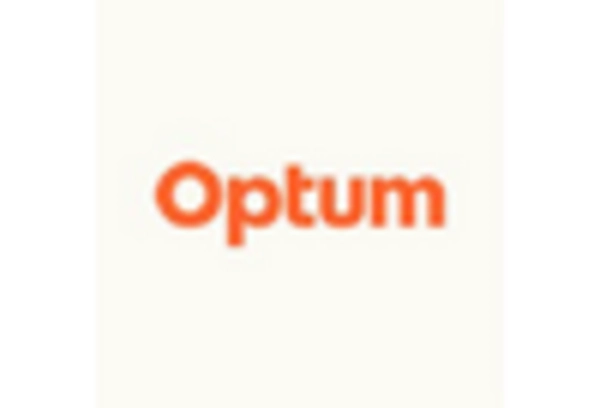Growing Emphasis on Patient Engagement
The healthcare predictive-analytics market is witnessing a growing emphasis on patient engagement. This trend is reshaping how healthcare providers interact with patients. By utilising predictive analytics, healthcare organisations can better understand patient behaviours and preferences, leading to more tailored communication and care strategies. In the UK, this trend is reflected in the increasing use of mobile health applications and patient portals that leverage analytics to enhance user experience. The market is likely to expand as providers recognise the value of engaging patients in their own care, potentially improving adherence to treatment plans and overall health outcomes. This focus on patient-centric care is expected to drive innovation within the healthcare predictive-analytics market.
Increased Focus on Preventive Healthcare
The healthcare predictive-analytics market is propelled by an increased focus on preventive healthcare strategies. As healthcare systems in the UK shift from reactive to proactive approaches, predictive analytics is becoming essential for identifying at-risk populations and implementing early intervention strategies. This shift is supported by government initiatives aimed at reducing healthcare costs and improving population health outcomes. The market is anticipated to grow as healthcare providers leverage predictive analytics to develop targeted prevention programs, which could potentially reduce hospital admissions by up to 30%. This proactive stance not only enhances patient care but also aligns with the broader goals of sustainability and efficiency within the healthcare system.
Advancements in Technology Infrastructure
The healthcare predictive-analytics market is significantly influenced by advancements in technology infrastructure. The integration of cloud computing, big data technologies, and advanced analytics tools has enabled healthcare organisations to process and analyse large volumes of data more efficiently. In the UK, the adoption of these technologies is facilitating the development of sophisticated predictive models that can forecast patient outcomes and optimise treatment plans. The market is expected to witness substantial growth, with investments in IT infrastructure projected to reach £2 billion by 2026. This technological evolution not only enhances the capabilities of predictive analytics but also supports interoperability among various healthcare systems, thereby improving data sharing and collaboration across the healthcare ecosystem.
Rising Demand for Data-Driven Decision Making
The healthcare predictive-analytics market is experiencing a notable surge in demand for data-driven decision-making processes. This trend is largely attributed to the increasing complexity of healthcare data and the necessity for healthcare providers to derive actionable insights from vast datasets. In the UK, healthcare organisations are increasingly adopting predictive analytics to enhance patient outcomes and streamline operations. According to recent estimates, the market is projected to grow at a CAGR of approximately 25% over the next five years. This growth is indicative of a broader shift towards evidence-based practices, where data analytics plays a crucial role in clinical decision-making and resource allocation. As healthcare providers seek to improve efficiency and patient care, the reliance on predictive analytics is likely to intensify, thereby driving the market forward.
Regulatory Changes and Compliance Requirements
Regulatory changes and compliance requirements significantly impact the healthcare predictive-analytics market. In the UK, healthcare organisations must navigate a complex landscape of regulations that govern data privacy and security, particularly with the implementation of the General Data Protection Regulation (GDPR). These regulations necessitate the adoption of robust analytics solutions that ensure compliance while enabling effective data utilisation. As organisations strive to meet these requirements, the demand for predictive analytics tools that can provide insights without compromising patient confidentiality is likely to increase. This regulatory environment not only shapes the market dynamics but also encourages innovation in developing compliant analytics solutions that enhance operational efficiency and patient trust.


